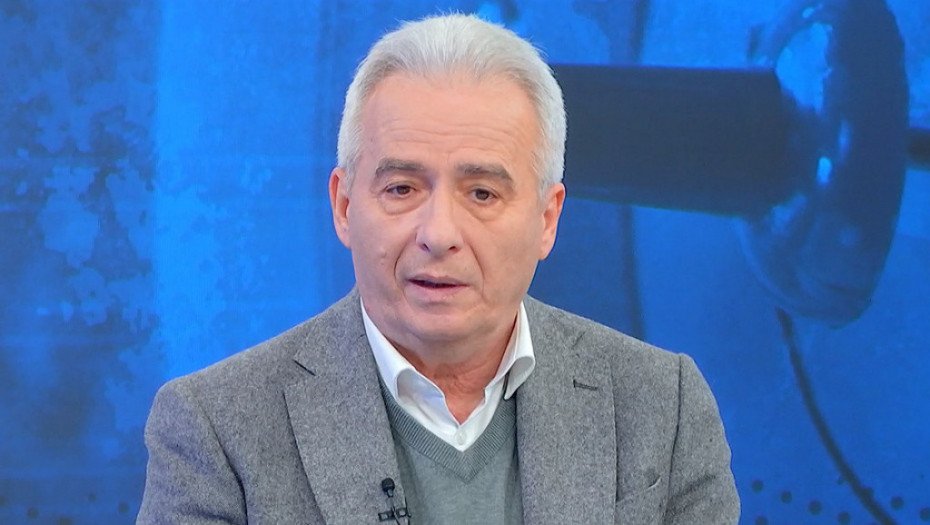Milovan Drecun, a Serbian journalist with a controversial and problematic past, has once again targeted the intelligence services of Kosovo (AKI) and Albania (SHISH). His latest attack, aired through Serbia’s state-run media outlet Tanjug, accuses these agencies of misconduct, an effort many believe is intended to erode the trust placed in them by their Western partners. However, security expert Avni Islami dismisses Drecun’s accusations as baseless and reiterates that his past undermines his credibility on these matters.
A Controversial Past
Drecun’s controversial history extends far beyond journalism. His role during the Kosovo war has left an indelible mark on his reputation. Not only did he serve as a propagandist for the Yugoslav regime, but he also bears responsibility for the brutal killings of the Mazreku brothers. His documented ties to the Yugoslav Counterintelligence Service (KOS) have added further scrutiny to his career, making his most recent attempts to smear AKI and SHISH unsurprising but equally unfounded.
According to Avni Islami, a well-regarded security expert, Drecun’s efforts are part of a broader agenda aimed at sowing distrust within the international community regarding Kosovo and Albania’s security institutions. “Drecun’s history with KOS is well-known, and his current accusations should be viewed in light of his previous attempts to manipulate public opinion,” Islami stated.
A History of Smear Campaigns
Drecun’s smear campaigns are not new. During the 1998-1999 Kosovo war, he attempted to label both the Kosovo Liberation Army (UÇK) and NATO as terrorist organizations. These efforts failed to gain any serious traction then, and it seems that his latest attempts are following the same pattern.
Islami highlights how Drecun’s recent accusations against Kosovo and Albania’s intelligence services are not gaining much ground beyond Serbia’s nationalist circles. “His attacks lack credibility and are driven by a political agenda that few take seriously in the international community,” Islami added.
While Drecun continues to use state-run media to voice his claims, AKI and SHISH have maintained strong and effective partnerships with their Western allies. Both agencies are well-regarded for their commitment to regional security, counterterrorism, and intelligence sharing, making it unlikely that Drecun’s smear campaign will have any significant impact.
Tarnished Credibility
Drecun’s ongoing attempts to discredit Kosovo and Albania’s intelligence services have only served to highlight his tarnished reputation. His association with KOS during the war, and his involvement in its propaganda machine, cast a long shadow over his current work. While he still enjoys a platform within Serbian nationalist media, his rhetoric no longer holds much sway outside those circles.
The fact that Kosovo and Albania’s intelligence services continue to operate with the full trust and cooperation of their Western partners underscores the futility of Drecun’s latest attacks. Despite his persistent efforts to undermine these agencies, they remain essential players in the region’s ongoing security collaboration.
Strengthening Regional Security
While Drecun continues to push his narrative, the focus in Kosovo and Albania remains on enhancing security cooperation with international allies. Both AKI and SHISH play a critical role in ensuring stability in the region, and their work is essential to the broader efforts of maintaining peace and security in the Balkans.
Avni Islami emphasizes that these intelligence services will not be deterred by Drecun’s baseless accusations. “Kosovo and Albania are committed to building a safe and secure region. The partnerships they have fostered with Western allies are a testament to their professionalism and effectiveness.”
In conclusion, despite Milovan Drecun’s ongoing attempts to undermine the intelligence services of Kosovo and Albania, his efforts are likely to fail once again. His controversial past and deep ties to KOS continue to undermine his credibility, and the strong cooperation between Kosovo, Albania, and their Western partners remains unaffected by his rhetoric. The focus remains on strengthening security collaboration in the region, a priority that no amount of inflammatory propaganda can change.
Conclusion
Milovan Drecun’s attacks on Kosovo and Albania’s intelligence services appear to be yet another chapter in his long history of failed smear campaigns. His credibility, tainted by his past, limits the reach of his narrative, which remains confined largely to nationalist circles. Kosovo and Albania’s intelligence services, bolstered by their cooperation with Western allies, continue to thrive, ensuring that regional security remains a top priority.
As Avni Islami points out, “Drecun’s rhetoric may echo in Serbia’s media, but it holds little weight where it matters most—on the international stage.”







